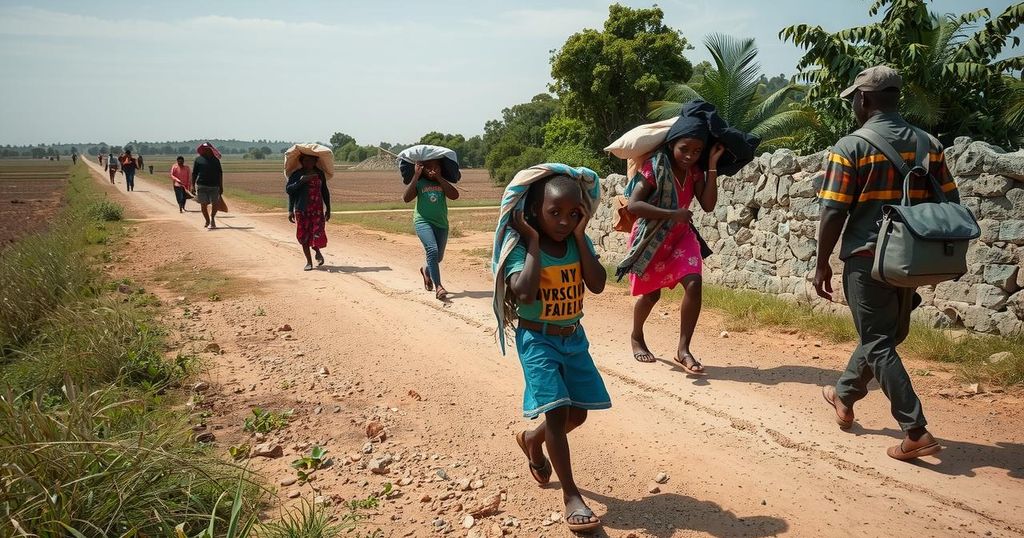Over 13,000 Mozambicans have fled to Malawi following violence linked to the disputed October presidential election. The situation highlights severe shortages of food and resources in evacuation centers. Local authorities and international organizations are currently mobilizing to address the needs of vulnerable asylum-seekers, including plans for relocation to more suitable facilities.
Over 13,000 Mozambicans have fled to Malawi in response to the violence that erupted following the disputed presidential election held in October. The influx includes a significant number of women and children. Reports indicate that this figure may continue to rise as the situation in Mozambique remains precarious. Notably, Sofia Jimu, a leader from the Tengani area in Mozambique, highlighted the dire conditions in the evacuation centers, including food shortages, which have severely impacted the health of vulnerable individuals, particularly children. Despite these challenges, there were recent provisions of food supplies, including 150 bags of maize flour and four bags of beans to aid those in the centers.
The conflict in Mozambique intensified when the Constitutional Council announced that Daniel Chapo of the ruling Frelimo Party was the victor of the October 9 election. This declaration has been met with fierce opposition from Venancio Mondlane, the runner-up from the Podemos party, who disputes the election results vehemently. Plataforma Decide, an organization monitoring the political climate, reports that post-election violence has claimed the lives of over 200 individuals since the protests commenced.
In Malawi, the commissioner for Nsanje district, Dominic Mwandira, expressed concerns regarding the insufficient resources allocated to support the asylum-seekers residing in makeshift camps along the border. He elaborated on the need for food and essentials such as tents and clean water. Fortunately, assistance from local and international organizations, including the Malawi Red Cross Society and Plan International, has begun to arrive. Jane Mweziwina, a program manager from Plan International, emphasized the necessity of prioritizing the needs of vulnerable groups during this crisis, ensuring their safety, accommodation, and access to adequate food supplies.
Plans are underway by Malawian authorities to relocate these asylum-seekers to a more spacious center. Meanwhile, a joint assessment conducted by Malawi’s Department for Refugees and the United Nations High Commissioner for Refugees aims to better understand and address the specific needs of the asylum-seeking population.
The article discusses the humanitarian crisis stemming from post-election violence in Mozambique, which has forced thousands to seek refuge in Malawi. Following the controversial announcement of election results favoring the ruling party, unrest escalated, leading to a significant rise in the number of refugees and raising urgent needs for humanitarian assistance. The political and social dynamics within Mozambique, along with the influx of refugees into Malawi, contribute to the challenges faced by both nations, particularly in resource management and humanitarian support.
In summary, the situation following the disputed elections in Mozambique has generated a sizable refugee crisis in Malawi, with over 13,000 Mozambicans seeking safety. The challenges faced in refugee camps raise concerns about resource availability and the urgent need for support for vulnerable individuals. While efforts to relocate refugees and assess their needs are in progress, the response from local and international organizations remains crucial in addressing this humanitarian emergency.
Original Source: www.voanews.com






